Nine tips to plan a successful charity digital campaign

Have you got an important digital campaign coming up? Perhaps you’re launching a new service or celebrating a milestone birthday? Maybe you just want to take advantage of popular awareness weeks, such as Volunteers’ Week or awareness days such as Giving Tuesday? In order to be successful, you need a strategy. In this post, we’ll share nine tips help you create a successful digital campaign.
Set objectives
If you’re planning a campaign, it’s so important to set objectives from the start, using SMART goals. Without setting objectives, how will you know if your campaign has been successful or not? Objectives need to be: specific, measurable, achievable, realistic and time-bound.
In this example, the NSPCC has probably set themselves a target of how many sign-ups they want to achieve for Number Day, their fundraising event, by a certain date. By setting this goal, they will be able to see if they’re going to achieve it and can tweak content along the way to optimise their chances of reaching their target.
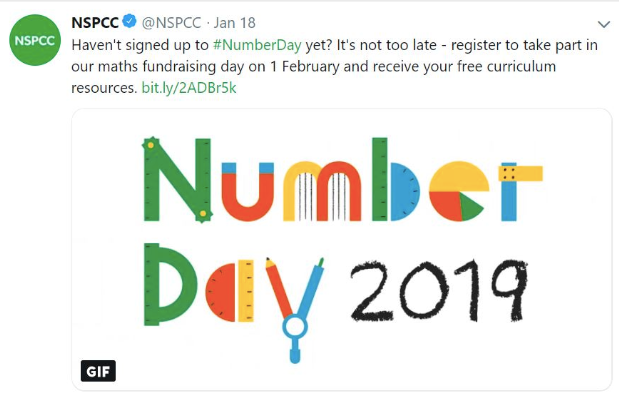
Understand your audience
How well do you really know your audience? When you create content, do you have a particular person in mind? By tailoring your content to a certain audience, you’ll have a greater chance of that content resonating with and engaging them.
In this example, it’s clear that this post is targeted at students who are struggling with mental health at university or college, not just anyone who has a mental health issue.
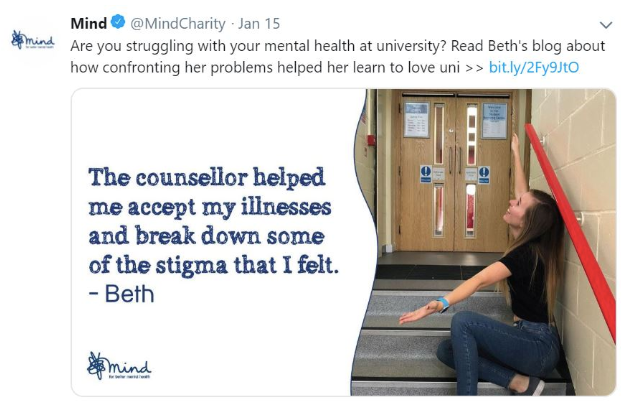
Collaborate
Sometimes the best ideas happen when we come together. Why not bring your team, or colleagues in other departments, together for a brainstorming session to come up with an idea and the resources you’ll need? This way everyone will feel ownership of the campaign and will be more willing to get involved.
Collaboration needn’t happen just in your organisation… back in November, we supported NCVO, CharityComms, Small Charities Coalition, ACEVO and the Institute of Fundraising to launch #YouMadeItHappen, which brought charities together to thank donors, supporters and volunteers for their support. It trended all day long! This is the power of collaboration.
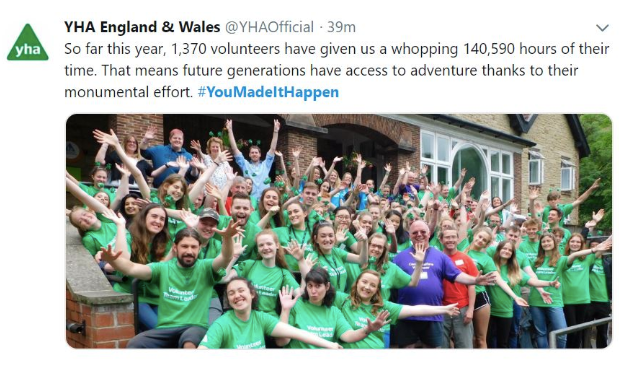
Plan, plan, plan
So you’ve got your brilliant campaign idea! How do you make sure you give it the best chance of success? By planning as much as you can in advance. Have a think about what images you will need and whether you have any existing images that you can use. Want to create a video? Put together a storyboard, think about the location, organise a time and date for filming and don’t forget to allow time for editing. Do you need a hashtag? Start writing your copy and planning your campaign content calendar so that you have enough time to dedicate to responding to engagement during the actual campaign.
Test all your elements
If your campaign has a call to action that’s all about conversion, you’ll need to do some testing. Make sure the landing page loads quickly and that the link to sign up is working. Most importantly, make sure you’re tracking the link so that you can measure how successful social media was in converting people. Depending on how much time and resource you have, you can also test your copy and images to see which works best with your audience.
In this example from the British Red Cross, the bit.ly link takes you to their campaign landing page. They will have tested the link as well as added tracking to it. Notice that they have also customised the bit.ly link so that it fits in with their campaign, which is about connecting people to tackle loneliness.

Co-create
Some of the best campaigns are successful because they have been co-created with beneficiaries or supporters. By including your audience in helping you create your campaign, you’re guaranteed that it will resonate with others in the same situation. Involve selected supporters and stakeholders in the planning of the campaign and then once it’s ready, create a toolkit which you can email to your supporters, trustees, volunteers, colleagues etc that they can share on their own social channels to support your campaign. Also encourage them to create their own content, around your campaign hashtag.
Here’s an example from our #ReclaimSocial campaign, where we encouraged charities to share positive stories on social media to counteract the negativity on social.
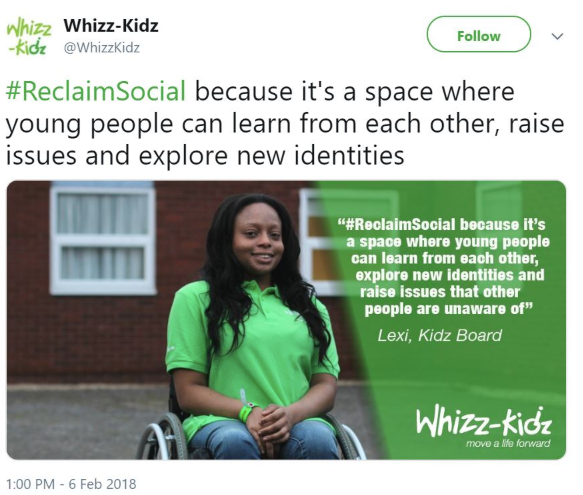
Be flexible
Whilst it’s important to plan your campaign and your content as much as possible, it’s also important to be flexible and to react to, or adapt to, any last-minute changes. If you’re scheduling in advance, remember to keep an eye on what’s trending on Twitter and whether you need to edit your content or not post (for example, if there were a terror attack in the UK).
There may be a relevant trending hashtag that you could take advantage of so be sure to edit your posts accordingly.
Keep the momentum going
Not matter how long your campaign is running for (one day, one week or a month), it’s important to keep people engaged and to keep the momentum going. One way you can do this is to stagger your content and to get your champions (colleagues, supporters, partner organisations etc) to post throughout the campaign and not just at the launch.
Measure
Remember the first tip was to set objectives and SMART goals for your campaign? That’s because without them it’s impossible to measure how your campaign did. There’s no point spending time creating an amazing campaign if you don’t know how it performed. Use what you’ve learnt to improve your future campaigns!

Come along to our Social Media Exchange workshop on campaign planning for lots more tips and examples! Get your ticket here.
Latest articles
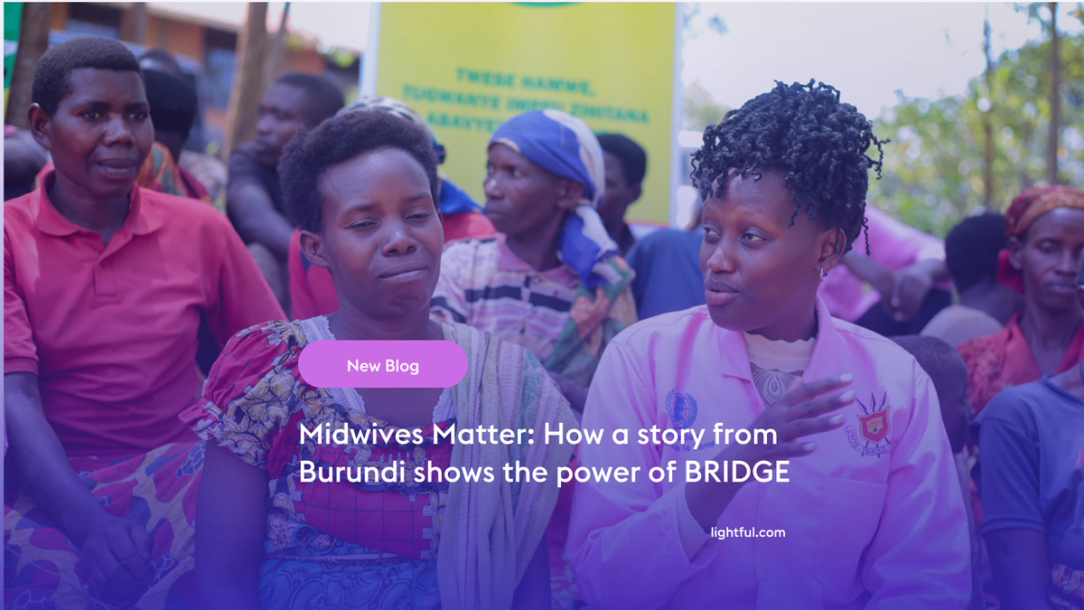
Over the past year, Lightful and the International Confederation of Midwives (ICM) have supported Midwives Associations across Africa, South Asia and the Eastern Mediterranean to build their digital confidence through our BRIDGE programme. These organisations were starting from very different places, but all shared the same goal: to use digital tools to strengthen their voice, raise their visibility and advocate for better outcomes for women and babies.
Related posts
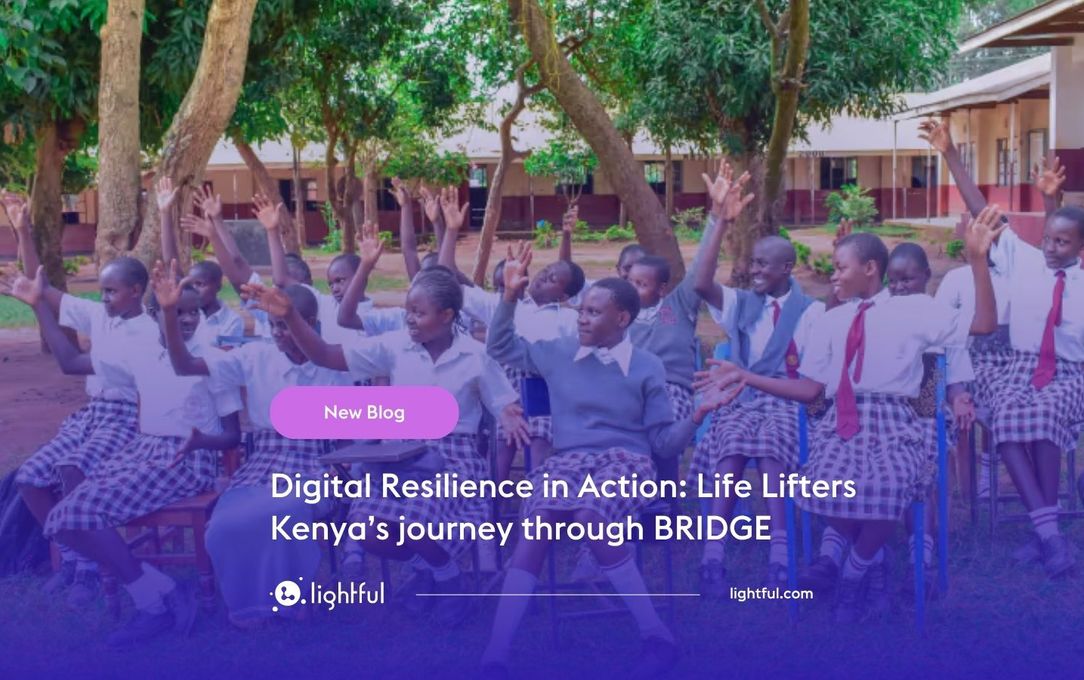
In today’s rapidly evolving digital landscape, the ability to engage online is a necessity. For nonprofits, especially those working in underserved regions or tackling complex social issues, digital tools can be the bridge between intention and impact. Whether it’s reaching new donors, advocating for policy change, or delivering services, digital capacity enables organisations to scale their mission and deepen their impact. Yet many grassroots organisations remain digitally under-resourced. That’s why Lightful created the BRIDGE programme - Building Resilience in Digital Growth and Engagement - to empower nonprofits with the skills, confidence, and strategies to thrive in the digital age and build lasting change.
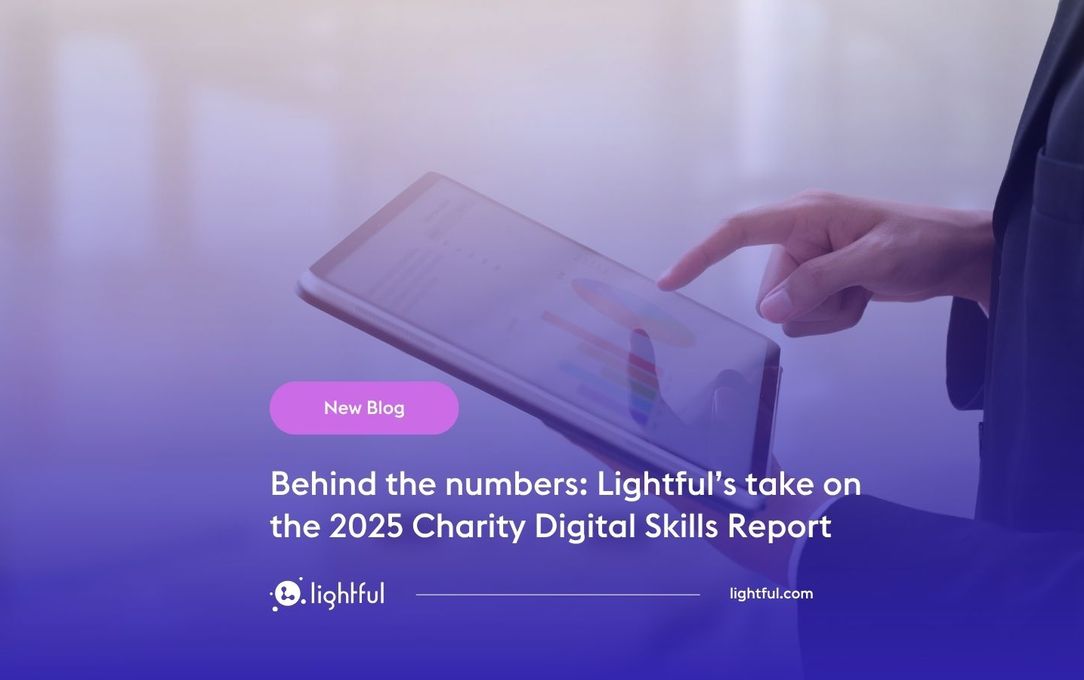
Advancing digital maturity: what Lightful has learned from supporting 3,500 charities globally
See who we help
Contact us
Want to learn more?
Email Jonathan and start a conversation






